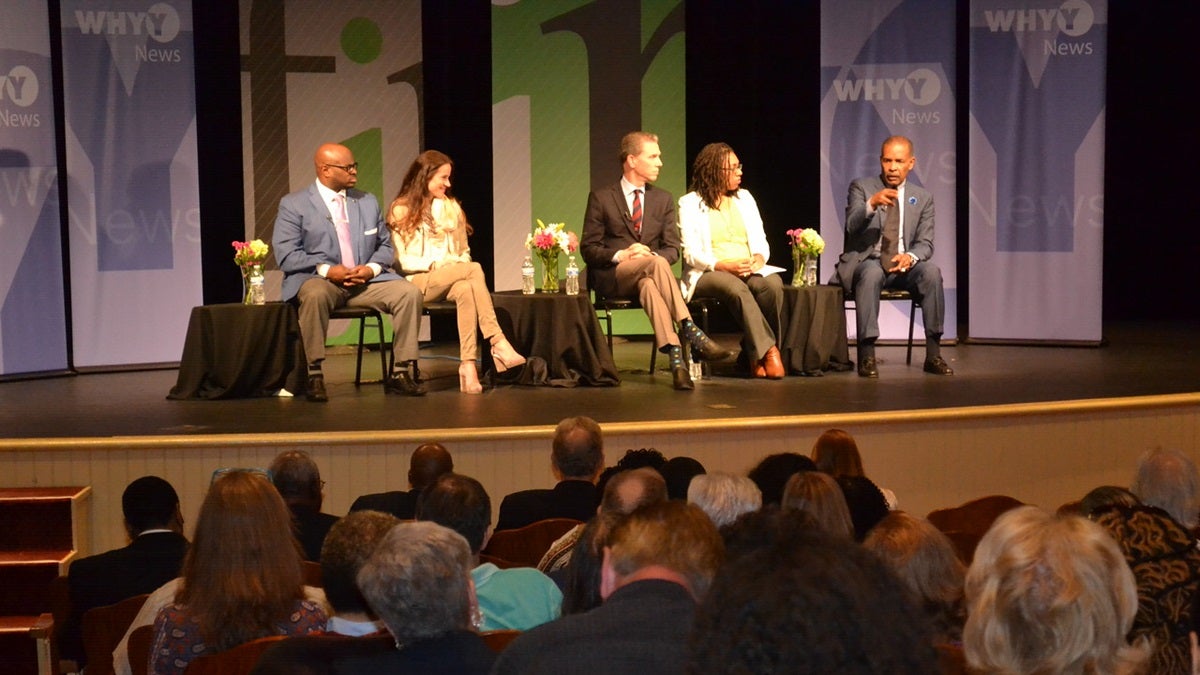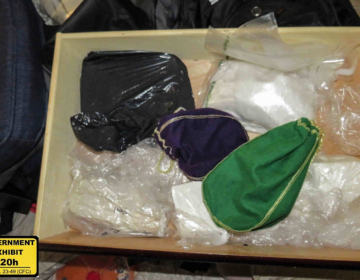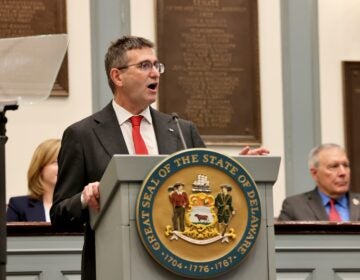Wilmington forum explores race and class fences

(Tory Harris/WHYY)
Wilmington residents are more than eager to start conversations about race and social injustices. They’re determined to continue addressing uncomfortable issues that create disparities in communities where people of color live.
“Seek to understand before seeking to be understood,” said Charlie Copeland, former GOP Chairman.
On Tuesday, more than 200 people gathered at the Baby Grand in Wilmington for a forum presented by WHYY entitled Race: Removing Fences between Black and White Communities.
Wilmington is home to approximately 71,000 people. Nearly 60 percent of the residents are black with many of them living in poverty, according to Dr. Yasser Payne of the University of Delaware, who authored the People’s Report.
“The city is a hidden jewel filled with hard times and lots of love and like most cities in America, Wilmington is sharply and deeply stratified by race and class,” Payne said. “There are pockets of whiter and wealthier neighborhoods that sit neatly or adjacently or next door to mostly darker skinned poor neighborhoods.”
Payne painted a picture of what it actually means for people to be left behind while a distinguished group of panelists identified fences in a number of areas.
Joe Madison, national radio host of the Black Eagle said the first fence is cultural conditioning among black people.
“In America, whether it’s Delaware, Detroit or wherever, we are culturally conditioned to believe that white is superior and black is inferior and the manifestation of that cultural conditioning is that black is undervalued, underestimated and marginalized,” Madison said. He added, as a result, the first step is to remove it.
According to Dr. Tony Allen of the Wilmington Education Improvement Commission, fences force “people to live in separate circumstances physically and they will live in those circumstances intellectually and culturally and emotionally” especially due to fences within the education system. He pointed to desegregation in Wilmington as a lingering problem that can’t be ignored.
“I know we know that you’re not going to get great public schools if you have a tax base that can’t support great public schools. You can’t quite do that in the city of Wilmington despite what has been of significant effort in that regard. So as long as those fences are paramount, particularly the fact of desegregation, I think that it’s critical if we move forward or not,” Allen said.
“In terms of education, we have to convince the powers to be- whether economic or political- that education is the currency of the 21st century. And in the 21st century the person that has the education is the person that can write their ticket,” Madison said.
For Ashley Biden of the Delaware Center for Justice, the disparities in prison sentences and arrests are another example of fences.
“I would also argue that there are fences and there are also cages. It’s a really complexed issue. If we’re going to change it, we have to start by being honest,” Biden said.
Copeland said a part of the problem is that many people are a product of their surroundings and “absorb the behaviors” of their neighborhood because “humans try to mimic back what they see to an extent.”
However, Copeland offered what he called a solution to tearing down fences in communities that separate people because of their race and class.
“If you want to improve the city of Wilmington you have to get outside the city of Wilmington. Talking amongst yourself and getting angry about it serves no purpose because the population of the state is 950,000 people,” Copeland said. “You’re 71,000 people. You need more votes in the General Assembly to implement the policies that you want and you’re not going to get them in the city of Wilmington.”
However, Madison shared a different point of view.
“You are going to have to reinvest and reinvent Wilmington. You’ve got to do it,” Madison said. “If you think somebody else is going to come in and save your ass, you can forget it.”
Minister Rachel Livingston’s approach to removing fences comes from the spiritual side.
“When we talk about this issue of race and tearing down walls, I think we need to look at, if we’re coming from the Christian faith, we need to look at who Jesus talked to, who Jesus was with, who Jesus sat with and those were the lowest of low, the pariahs of the community, and I think we need to not be afraid to sit with the pariahs of the community and those who have gone through specific things,” Livingston said.
The event was a collaboration between WHYY, the Christina Cultural Arts Center and the Metropolitan Wilmington Urban League. It’s the first of many conversations designed to spark more action from residents in the community.
“We need to love one another for who they are,” Livingston said.
Tune into First on Friday night May 19 at 5:30 p.m. and 11p.m. for highlights of Tuesday’s event.
WHYY is your source for fact-based, in-depth journalism and information. As a nonprofit organization, we rely on financial support from readers like you. Please give today.




